An Utterly Incomplete Look at Research from 1924
This series looks at research from years past. I survey a handful of books and articles in a particular year from math, economics, philosophy, international relations, and other interesting topics. This project was inspired by my retrospective on Foreign Affairs' first issue from September 1922.
The relation between science and society is the primary theme from the selections below. H. B. S. Haldane imagines a future where science frees humanity from the constraints of nature; Bertrand Russell sees this future as a collectivist prison of sorts. Philosophers of various stripes — whether idealist or otherwise — seek to integrate results from relativity theory into their metaphysical views about the world. Some economists seek to replicate the success of the natural sciences by overhauling classical and marginalist economics.

A more specific but not unrelated theme is group rationality. Ralph Barton Perry asks directly if we can think of society as a person or rational agent. L. P. Jacks considers if ethical norms among states are analogous to ethical norms among people in society. Floyd H. Allport argues that social phenomena can only be explained by appealing to individual behavior.
The selections below are anchored by two collections of essays: The Trend of Economics and Contemporary British Philosophy. The former is meant to be a look at the direction of economic research and methodology, particularly among American economists. The latter is more backward-looking and surveys established names in British philosophy during the time when idealism was the dominant program among philosophers. Though I’ve condensed each collection into a few paragraphs, I specifically mention the articles I find worth taking a look at.
I most enjoyed Arthur Pigou’s Poetry and Philosophy and Moses Schönfinkel’s On the building blocks of mathematical logic. Pigou reflects on the differing modes of thought between philosophy and poetry, and Schönfinkel introduces an elegant construction to reduce first-order logic to compositions of functions. If I’ve missed anything interesting from 1924 that you enjoy, shoot an email my way at brettcmullins(at)gmail.com.
Economics
The Trend of Economics by Rex Tugwell
The Group Fallacy in Relation to Social Science by Floyd H. Allport
Alfred Marshall, 1842-1924 by John Maynard Keynes
Philosophy
Contemporary British Philosophy by J. H. Muirhead
Poetry and Philosophy by Arthur Cecil Pigou
Review of The Meaning of Meaning by J. R. Kantor
Is Society a Person? by Ralph Barton Perry
On the Discrimination of Romanticisms by Arthur O. Lovejoy
Math
On the building blocks of mathematical logic by Moses Schönfinkel
On Games that Involve Chance and the Skill of the Players by Emile Borel
The Average Value of a Functional by Norbert Wiener
International Relations
The Economic Restoration of the World by Gustav Stresemann
The Future of the Monroe Doctrine by Archibald Cary Coolidge
Logical Method and Law by John Dewey
The Social Philosophy of Mr. Bertrand Russell by William Orton
An International Ethic by L. P. Jacks
Other Topics
Medieval People by Eileen Power
Daedalus; or, Science and the Future by H. B. S. Haldane
Icarus, or the Future of Science by Bertrand Russell
The Grammarian and His Language by Edward Sapir
Economics
The Trend of Economics
Edited by Rex Tugwell
Link: HathiTrust
During the early 1920s, American economics seemed to be at a turning point. Out were the metaphysical speculations of the classical economists and the false psychology and mathematical sophistry of the marginalists. In was the context-sensitivity and empiricism of the institutionalists. Or, at least, this is the story this collection of essays tells.
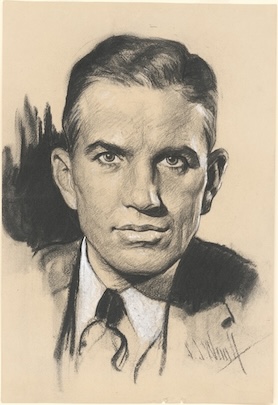
This collection aims to map out the directions of research from the next generation of American economists. More often than not, though, these essays merely critique economic methodology or reflect on philosophical issues. The most interesting take away is that many of the critiques one finds in philosophy of economics or heterodox books today can be found here such as the absurdity of the economic man (or homo economicus) and the perceived over-reliance on mathematical methods.
Several authors champion empirical methods in economics; however, they often underestimate the difficulty of reasoning about causation from statistical evidence, especially given what was known at the time. Only William E. Weld’s “Regional Comparison and Economic Progress” fully appreciates these aspects. In my estimation, this is also the contribution most worth reading.
The final three essays are the best of the bunch, and the second volume is much better than the first. Unfortunately, I only own the first volume in print!
The Group Fallacy in Relation to Social Science
Author: Floyd H. Allport
Publication: American Journal of Sociology
Link: JSTOR
Floyd Allport’s text Social Psychology (1924) introduced an approach to studying social phenomena in terms of individual behavior. This paper from earlier that year develops the argument that a sociology that seeks to explain rather than merely describe must reason from the psychology of individuals rather than ponder the properties of society as a whole. Allport refers to the latter as the group fallacy.
This line of reasoning relies on a reductionist view about scientific reasoning. We can divide the empirical sciences into a hierarchy ordered by fundamentality beginning with physics and chemistry and ending with sociology and the other social sciences. Allport argues that the ontology of a field is sufficient for description of phenomena but not for explanation, particularly causal explanation. Rather, results from lower in the hierarchy are employed to explain.
Now the essential fact is that in the hierarchy of sciences the field of description of one science becomes the field of explanation for the science immediately above it…To recapitulate: the sociologist describes social or collective phenomena and explains them in terms of individual behavior; the psychologist describes behavior and explains it in terms of reflex mechanisms; the physiologist describes the reflex mechanism and explains it in terms of physical and chemical changes.
Alfred Marshall, 1842-1924
Author: John Maynard Keynes
Publication: The Economic Journal
Link: JSTOR
This is a biography of the economist Alfred Marshall upon his death in 1924. Marshall is cast as the greatest English economist in the late nineteenth century and, in some sense, the founder of English economics. Keynes, along with his father, were pupils of Marshall at Cambridge. Despite this, the discussion of Marshall’s life and work is as much critical as it is hagiographical and is beautifully written throughout.

Marshall sought greater precision in Economics through formalizing the work of the classical economists. At the same time, he viewed overly mathematical treatments such as William Stanley Jevons’ The Theory of Political Economy (1871) with disfavor and employed diagrams to appeal to a wider audience including the “businessman”. Marshall’s work eventually found expression in his text Principles of Economics (1890), which became the leading textbook for a generation of economists and introduced modern commonplace notions such as supply and demand curves and elasticity.
One thing that dimmed Marshall’s star a bit is his publishing habits or lack thereof. Marshall was a sort of perfectionist who eschewed controversy. He reworked his writings again and again such that his final book Money, Credit and Commerce (1923) contained passages first conceived fifty years prior. A practical consequence is unclear priority of some innovations. Marshall’s primary mode of dissemination was through his students, some of which such as Keynes and Arthur Pigou became leading economists themselves.
Philosophy
Contemporary British Philosophy: Personal Statements (First Series)
Edited by J. H. Muirhead
Link: Google Books
Since the late 19th century, philosophy in Britain was dominated by idealism with undercurrents of analytic philosophy, pragmatism, and realism. This book is the first of a two-volume collection of essays surveying philosophical views from the contemporary established names in British philosophy. Unsurprisingly, about half of the essays proffer some sort of idealism with the remainder largely reacting to the dominant approach.
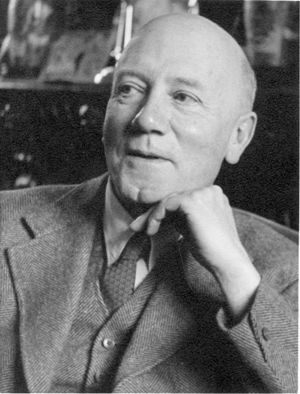
While the essays themselves are a mixed bag, there are some highlights. In “Critical and Speculative Philosophy”, C. D. Broad discusses two modes of philosophizing with the former focused on conceptual analysis and working hand-in-hand with the sciences, while the latter reasons about reality as a whole and was exemplified at the time by idealism. It’s difficult not to read this today as presaging the analytic and continental divide.

F. C. S. Schiller frames pragmatism within a human-centric philosophy. Rather than philosophy being abstract and the sciences applied, both ventures aim to attain coherent theories that are consistent with the available evidence, though each relies on different sorts of evidence. Herbert Wildon Carr argues philosophy and physics are converging on a similar set of ideas with subjective idealism and the theory of relativity.
Bertrand Russell’s “Logical Atomism” gives a clear and lively account of definite descriptions and connects this with his eponymous paradox. In “Some Implications of Theism”, William Temple argues that we should orient our thinking around explaining the usual case rather than edge cases. For instance, with regard to matters of religion, we should seek to explain the experience of the common adherent rather than the ascetic mystic, though the latter case is otherwise more interesting.
Poetry and Philosophy
Author: Arthur Cecil Pigou
Publication: The Contemporary Review
Link: Google Books
There is an apparent tension between philosophical and poetic attitudes: philosophy prizes truth to the detriment of beauty, while poetry seeks to stir emotion without regard for reason. This article reflects on the degree to which the poetic strays one from the truth.
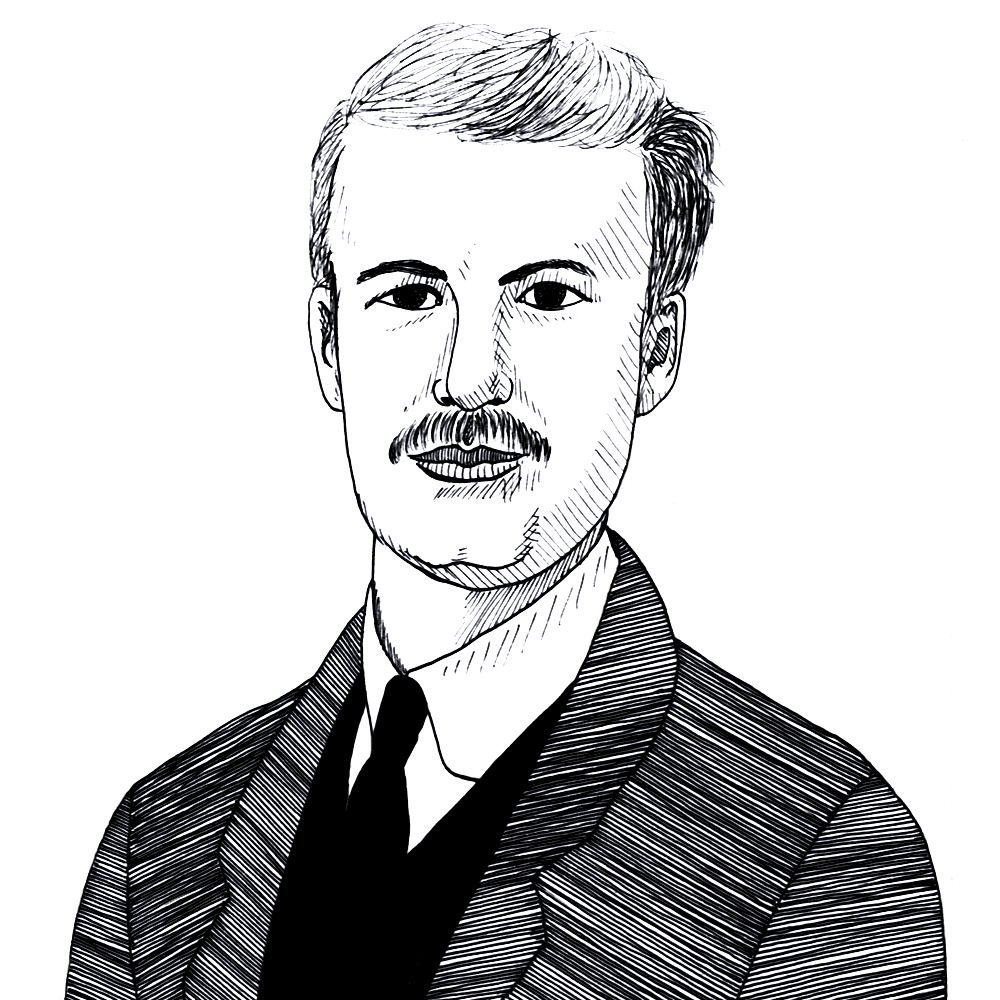
While poetry cannot do all of the heavy lifting of philosophy, Pigou finds a place for poetry in his view of the epistemic regress. Being a strong foundationalist (as was common at the time), Pigou holds that there are two sorts of beliefs or propositions: those inferentially justified and those immediately justified. The former are the stuff of philosophy, logic, mathematics, and the sciences: the what in what follows from what. The latter can be more ephemeral and is the stuff of metaphysics, foundations, methodology, and moral philosophy.
The poetic mode can provide data to support or frame which beliefs are justified immediately. Another place for poetry concerns how hypotheses or positions are discovered rather than their ultimate logical justification. Philosophers of science refer to these as the context of discovery and the context of justification.
Poetry and Philosophy is an excellent companion to C. P. Snow’s The Two Cultures (1959), since it provides a model of how the humanities and sciences can be complementary endeavors.
Review of The Meaning of Meaning by J. R. Kantor
Author: J. R. Kantor
Publication: The Journal of Philosophy
Link: JSTOR
This is a critical review of The Meaning of Meaning (1923) by C. K. Ogden and I. A. Richards. The bulk of the review summarizes the book with particular focus on the notion that the relations between thought, symbol, and sign are causal.
Kantor makes several strong criticisms. Ogden and Richards oversell the importance of the problem of communication. Even if their evaluation is correct, solving the problem of communication by obtaining an exacting level of precision in language would not solve all problems.
“Supposing every scientist were as careful as possible about his words as symbols, would this mean a more perfect science?”
The larger critique is that Ogden and Richards’ framework is within the logical/analytic tradition. Kantor argues that the level of abstraction that their analysis obtains abstracts away from the interesting parts of the problem of communication, namely that communication is an inherently social activity bound by social institutions and norms.
Is Society a Person?
Author: Ralph Barton Perry
Publication: The Journal of Philosophy
Link: JSTOR
Émile Durkheim argued that society must be a person for morals to be possible. The question of social personhood isn’t clear at first blush. Several sorts of collectives don’t resemble their components in kind: an army isn’t a soldier, an alphabet a letter, nor a bookshelf a book. Other sorts of collectives can be such as a machine that combines other machines. Do collections of people resemble the former or the latter?
Perry locates a key part of personhood in goal-based reasoning about one’s self. This is the sort of thing people do all of the time. But what about collections of people? For a society to exhibit goal-based reasoning, all its members would have to have their goals aligned with society or, rather, where one member would have the personality of all.
Interestingly, this conclusion hints at Arrow’s impossibility theorem, which says that the collective preferences of a group of rational agents are not rational unless it’s possible that there is some agent that acts as a dictator with respect to the group.
On the Discrimination of Romanticisms
Author: Arthur O. Lovejoy
Publication: PMLA
Link: JSTOR
Romanticism is a seemingly ephemeral artistic movement which has been attributed as many origins as exemplars and mutually contradicting descriptions. Lovejoy sets as his task to begin to untangle the mess of ideas bound up in this term rather than adjudicating this dispute:
Least of all does it seem possible, while the present uncertainty concerning the nature and locus of Romanticism prevails, to take sides in the controversy which still goes on so briskly with respect to its merits, the character of its general influence upon art and life. To do so would be too much like consenting to sit on a jury to try a criminal not yet identified, for a series of apparently incompatible crimes, before a bench of learned judges engaged in accusing one another of being accessories to whatever mischief has been done.
We should not assume that there is any single such entity as Romanticism, though the term is widely used. Rather, we should distinguish the many senses in which it is used and compare their properties and contexts. In this way, we can trace the threads of this idea. Lovejoy’s analysis provides a case study in methodology for the history of ideas. In fact, he would later found the Journal of the History of Ideas in 1940.
Math
On the building blocks of mathematical logic
Author: Moses Schönfinkel
Original Title: Über die Bausteine der mathematischen Logik
Publication: Mathematische Annalen
Translated in From Frege to Gödel: A Source Book in Mathematical Logic, edited by Jean van Heijenoort and introduced by W. V. O. Quine
Link: Internet Archive
A typical exercise in a first course in mathematical logic is to prove that propositional logic can be expressed using only two of the typical operators such as $\neg, \lor$ i.e. not and or. In 1913, Henry Sheffer proved that there is a single operator — now called NAND — capable of expressing all of propositional logic given by $A \mid B = \neg A \lor \neg B$ for propositions $A, B$.
In this paper, Schönfinkel proves a similar but deeper result for first-order logic that reduces quantification, variables, and predicates to functions. In this setting, first-order logic can be expressed using three functions: a constant function $K$, a substitution function $S$, and a version of NAND $U$ for quantified predicates. Schönfinkel’s presentation is elegant, powerful, and philosophically reflective.
If the idea of building up formulas from functions sounds familiar, it is the basis for functional programming. In 1927, Haskell Curry discovered Schönfinkel’s paper and began developing combinatory logic, where these sorts of reducing functions are called combinators. Stephen Wolfram has written an interesting history of Schönfinkel centered around this paper.
On Games that Involve Chance and the Skill of the Players
Author: Emile Borel
Original Title: Sur les jeux où le hasard se combine avec l’habileté des joueurs
Translated by Leonard Savage in Econometrica (1953)
Publication: Comptes Rendus Hebdomadaires des Séances de l’Académie des Sciences, Paris
Link: JSTOR

In the 1920s, Emile Borel made several early contributions to game theory. In the present paper, he analyzes $3 \times 3$ extensive-form games in the 2-player, zero-sum setting. The paper is organized around a simple game that essentially is rock-paper-scissors played sequentially. Borel considers how various payoffs affect whether either player has a dominant strategy. He defines this as a strategy that always wins in the long run. In a symmetric game, for instance, he shows that neither player has a dominant strategy.
Importantly, these results hold for mixed strategies — where a strategy is a probability distribution over options — as well as pure strategies. When considering the more general $n \times n$ game, however, Borel claims that the first player has a dominant strategy. Unfortunately, it’s not clear to me exactly where this comes from and how to general case differs from the specific case.
The Average Value of a Functional
Author: Norbert Wiener
Publication: Proceedings of the London Mathematical Society
Link: Click here
A Wiener process is a random walk defined as a continuous-time stochastic process with independent Gaussian noise at each time step. In this model, the time interval is from $0$ to $1$, so possible paths of the process can be represented as the set of continuous functions on the unit interval.
This paper studies properties of measuring the probability of easily defined events on this space called quasi-intervals. Let $x_t$ be the value of a random walk at time $t$ and $t_1, \ldots, t_k$ be $k$ distinct times between 0 and 1. A quasi-interval $I$ is a collection of $k$ real-valued intervals $I_1, \ldots, I_k$ such that $x \in I$ means that $x_{t_i} \in I_{t_i}$ for $i = 1, \ldots, k$. The probability of this event is just the probability that the random walk is between such and such value at time $t_1$, between such and such value at time $t_2$, and so on.
Wiener shows that the calculation of these probabilities is an instance of the Daniell integral on the space of continuous functions. The Daniell integral is an alternative to the Lebesgue integral that doesn’t require an existing measure space to be well-defined.
International Relations
The Economic Restoration of the World
Author: Gustav Stresemann
Publication: Foreign Affairs
Link: Click here
The 1924 Dawes Report addressed German reparations and sought to ease international tensions, particularly between France and Germany. The report set out terms for repayment and included a loan to the German central bank to stabilize the currency and, in turn, the economy. Stresemann, the sitting German Minister of Foreign Affairs, commends the Dawes commission for approaching the reparations problem as businessmen rather than politicians. This analysis focuses largely on the economic consequences of a disordered system of international trade. Stresemann paints the picture of an interconnected and interdependent world prior to the war.
The relations of the Continental countries drew continually closer and more intimate. Each individual country became a link in a homogeneous economic chain which could not be strained at any one point without the effect being felt by its every link. The whole earth was covered with a network of mutual political, economic and cultural relations of an increasingly intimate nature. Men learned to think in terms of continents instead of countries. Their horizon became world wide. Their daily life depended upon the smooth working of the vast machinery by which commodities and capital were internationally exchanged. New York, London, Berlin and Paris formed the centers which kept this machinery running.
The war wrecked this harmony in a few ways. The retreat of international credit led to situations where producers of raw goods have overflowing inventories, producers of finished goods lack credit and are operating at diminished capacity, and consumers face shortages and higher prices. This led to decreased economic specialization among countries and regions due to instability. The Dawes Committee was one of the first to approach the reparations problem as a liability to global economic system rather than just as a punitive measure.
The Future of the Monroe Doctrine
Author: Archibald Cary Coolidge
Publication: Foreign Affairs
Link: Click here
The Monroe Doctrine is the position that foreign interference of states in the Americas can be an act of aggression toward the United States. The idea was to suppress colonial meddling by European powers. During the 100 years since its introduction in 1823, the policy had become part of American dogma or the story the United States tells about itself.
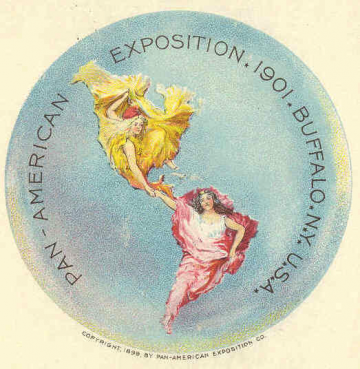
The future prospects for the Monroe Doctrine were mixed. An immediate issue is that many South American states were no longer fledgling former colonies. While the doctrine is an expression of pan-Americanism, it does not meet these states on equal terms or necessarily respect their independence. Ideas such as a pan-American Congress or defense pact would run afoul of another American dogma: not conceding autonomy in negotiations, even with allies.
Many South American states belonged to the League of Nations of which the United States abstained from joining. It’s unclear how the doctrine could continue if the member states sided against the United States on an important policy issue. This article was signed “C.” but was written by the editor at the time, Archibald Cary Coolidge.
Logical Method and Law
Author: John Dewey
Publications: The Philosophical Review and Cornell Law Quarterly
Link: JSTOR
Dewey conceives of logic as more expansive than the syllogism of Aristotelian thinking:
logic is really a theory about empirical phenomena, primarily connected with intelligent guidance of making decisions, and that it is subject to growth and improvement like any other empirical discipline.
In the context of judicial reasoning, Dewey criticizes the legal formalist approach that decisions are reached through deduction from legal principles and specific facts alone. Judges do and ought to reason about the consequences of decisions as well as how existing rules apply to new settings, a view now called legal realism. To better understand judicial reasoning, we should model it as “relative to consequences rather than to premisses, a logic of prediction of probabilities rather than of demonstration of certainties”.
The Social Philosophy of Mr. Bertrand Russell
Author: William Orton
Publication: American Economic Review
Link: JSTOR
In the early 1920s, Bertrand Russell gained an audience with the general public through his writings on economic, social, and political matters. This paper critiques Russell’s views by pointing to a irreconcilable tension in his thought between anarchism and collectivism. The former is motivated by a skepticism of power and a valorization of liberty, which Orton calls a “relic of the natural rights philosophy of a century and a half ago”. The latter is motivated by reducing waste and increasing human welfare.

In practice, this looks, for Russell, like a sort of guild socialism, where various producer and consumer groups bargain over the what, where, and how much of goods will be available. Even if such a scheme would reduce waste and promote welfare, oversight is needed to ensure the guild system runs smoothly, thereby bringing government with its potential abuses of power back into the picture. Orton does note that Russell’s views have changed substantially over time, so some aspects of this critique may be a bit uncharitable.
An International Ethic
Author: L. P. Jacks
Publication: Foreign Affairs
Link: Click here
This article considers the possibility of “an international ethic” i.e. a set of rules governing relations between states. A reasonable first approach is to model such an ethics on those governing relations between people e.g. Kantianism, utilitarianism, etc. A minimal version of this is to respect other states’ sovereign rights. Jacks argues that this impossible whenever there are conflicting claims between states. If two states each claim a given territory, then there is no way to resolve the dispute without picking a winner and a loser i.e. violating one state’s sovereignty. Another way to say this is that we shouldn’t expect such an ethic to be based solely on Pareto improvements.
Jacks holds that any set of rules adopted should be based on existing practice and norms rather than being imposed from without. He notes that the Ten Commandments would not have been effective if they did not codify the norms and mores that ancient Israelites were already adhering to. To identify successful candidate rules, we should look to successful instances of cooperation and mutual benefit between states.
Other Topics
Medieval People
Author: Eileen Power
Link: Google Books
Medieval People offers sketches of the lives of several Europeans living in the latter half of the Middle Ages. These range from a wool merchant in England and a prioress in the time of Chaucer to the semi-mythical Marco Polo and a Frankish peasant Bodo.
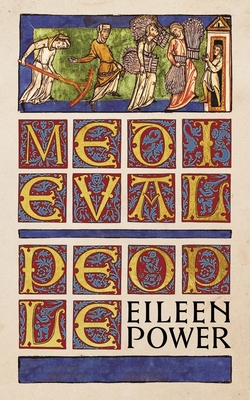
These sketches are distinguished by the diversity of evidence through which we learn about our characters. We know much about the happenings and personality of the fifteenth century English wool merchant Thomas Betson, since many of his letters were preserved. We learn about a fourteenth century couple in Paris through a sort of thoughtful guidebook written by an elderly husband to his young wife. For the peasant Bodo, however, we only know of him and his family through estate registers.
While direct evidence is sometimes scant, Power employs general accounts of life in the Middle Ages to fill in the gaps. In this way, the subjects of these sketches become as much representatives of their time and position in society than as individuals. I see Medieval People as an early instance of microhistory; though, I’ve never seen Power’s name alongside the likes of Carlo Ginzburg.
I read the 1999 Folio Society printing, which featured a few gorgeous illustrations and lovely typesetting.
Daedalus; or, Science and the Future
Author: J. B. S. Haldane
Link: Project Gutenberg
This essay embarks on a vision of the future of science and society. Haldane argues that the most pressing problems of the time are in biology. Yesterday’s theoretical advances in physics and chemistry are now commercial problems.
I believe that the progress of medicine has had almost, if not quite, as deep an effect on society in Western Europe as the industrial revolution.
Haldane views scientific or technological advances as breaking humanity free from limits imposed by nature. For instance, once cities solve their energy problem (his suggested method of wind-generated energy sounds like something one may hear today), they can light the streets in a way that breaks human behavior free from the cycle of day and night.
Haldane imagines a future where children are born via ectogenesis relieving women of the burden of childbirth, humanity from some genetic diseases, and, to some degree, decoupling romantic love from parenthood. With these changes, though, Haldane argues that our morals will shift accordingly. Importantly, these changes aren’t overtly orchestrated by sinister scientists acting to subvert the usual ways of life. Haldane, however, laments the possible loss of some features of contemporary life such as the family unit.
Icarus, or the Future of Science
Author: Bertrand Russell
Link: Internet Archive
In contrast to the optimism about future applications of science and technology in J. B. S. Haldane’s Daedalus; or, Science and the Future, this short essay warns of its downsides. Rather than liberating the individual from the confines of nature, Russell argues that advances in technology have increasingly collectivized humanity at the expense of our individuality. This is particularly relevant for long-distance communication technology. For instance, in the past, diplomats were given broad autonomy to act during urgent situations; however, with the advent of the telegraph and such, decisions were more-often made by a central office.

As Russell sees it, this collectivization isn’t an early statement of “the world is flat”; rather, it’s a reflection of the competitive nationalism enabled by such technology. This is where things go off the rails! Increasing coercion and state intervention due to jockeying among states has invalidated much of classical economics; statesmen will seek to foster a more docile population; so on and so forth. As a possible solution, Russell suggests a world-wide government to dampen nationalist tensions. Parts of this read as if they belong on a poorly-formatted conspiracy theory website!
The Grammarian and His Language
Author: Edward Sapir
Publication: The American Mercury
Link: Internet Archive
This article discusses the notion of linguistic relativity, also known as the Sapir-Whorf hypothesis, that the structure of one’s language influences how one sees the world. Sapir gives an excellent analogy where moving from one language to another is like a change of basis on a vector space:
To pass from one language to another is psychologically parallel to passing from one geometrical system of reference to another. The environing world which is referred to is the same for either language; the world of points is the same in either frame of reference. But the formal method of approach to the expressed item of experience, as to the given point of space, is so different that the resulting feeling of orientation can be the same neither in the two languages nor in the two frames of reference.
 Buy me a coffee
Buy me a coffee
